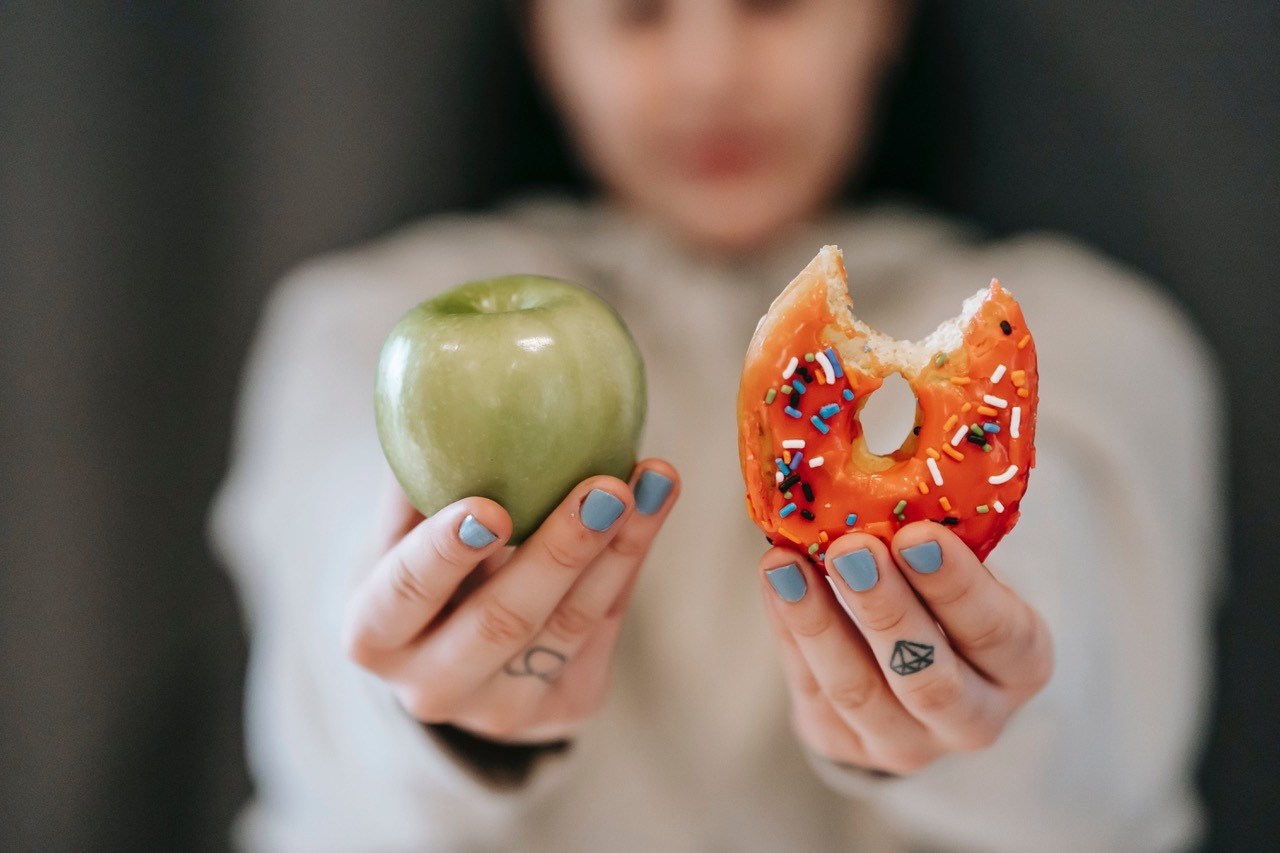We’ve covered the basics of what it is to eat more mindfully in our last blog. Now it’s time we talked about practice—and what better meal to start with than the first meal of the day? Routinely breaking your fast at the start of your day gives you the energy to do what you need to do. But a mindful breakfast can benefit you in other ways.
It can settle you and put you in a more ‘present’ state of mind so you can concentrate on your tasks or activities and enjoy them. Daftein explains how to break your fast more deliberately so you can start your day on a positive, in-the-moment note.
How Eating Mindfully Works
Mindful eating is a way of eating that emphasises paying attention to the physical and emotional experience of consuming food—using all your senses like taste, smell, sight, hearing, and touch to explore every tangible aspect of the meal, as well as acknowledging the very real reactions that the act of eating brings out in us.
Through it, we become more aware of our actions to nourish and sustain ourselves. Put in the context of practicing mindful eating during breakfast, it also becomes a way to ‘wake up’ more fully:
Before. As we prepare our meal, it’s an opportunity to coax our appetite out of its nocturnal slumber and feel our body’s signals to feed itself.
During. When we consider our food, taking the sight of our first meal of the day, we can enjoy the colors and shapes we find on the plate and experience the anticipation of bringing it to our lips and eating it. Then, as we finally act on our hunger and consume our meal, our taste buds awaken to savor the flavors after a night of dormancy.
After. As we eat our fill of breakfast, we begin to feel satiated but also more alert. When we take the time to notice the effect that our craving and subsequent consumption have on our physical and emotional states, it preps our mind to perceive the rest of the day in the same manner. It also opens ourselves to expressions of gratitude towards the ‘present’.
Here are 3 tips anyone can do to enrich their experience of breakfasting:

- Center Yourself Before a Meal by Taking Deep Breaths
When we wake up, it can be challenging not to run on autopilot and go about your routine. Sometimes, it even carries over to breakfast. The urge to grab something easy and sugary to get a hit of instant energy can be overpowering. Resist the temptation to satisfy a craving meaninglessly, however.
Before anything else, take several deep breaths. Track how you inhale the air through your nostrils, and how it travels down to your lungs. Hold it there for a couple of seconds, before exhaling through your mouth.
Centering yourself before eating helps you contain the cravings—the desire to eat mindlessly—by increasing the oxygen in your blood. Your deep breaths increase the oxygen in your body, energising you and creating a sense of well-being. In this relaxed state, your appetite’s grip on you eases just enough so you can think your next action through with more clarity.
- Pay Attention to the Link Between Food and Feeling
The method of eating mindfully isn’t a restrictive way of consuming food. Rather, it seeks to create a healthier relationship between you and what you eat. So while you are starting, eat as you would normally: pick out and prepare your usual fare, in the amounts and frequency that you’re used to. The only adjustment you need to make is to keep yourself in the ‘present’ as you eat.
A great time to test this is during breakfast when there are relatively less things vying for your attention and you’re still fresh out of sleep. Your main concern is to map out how you take in food and how you feel before and after. Both your physical (cravings, feelings of satiety) and emotional (happiness, disgust) reactions are important to note. Ask yourself questions like:
- Do I need to keep eating or do I already feel full?
- How does consuming this meal affect my emotions?
As you progress in your practice, you can begin to ask more complex questions about the reactions eating elicits from you. Remember that eating mindfully is eating sans judgment, too. So spare yourself from self-critiques and admonishments over whether or not you are eating in the ‘best’ or ‘healthiest’ way possible—this is not what you’re here for—and lead yourself back to the experience of eating.
Keep your observations organised by recording what you eat. These include snacks and little bites of this and that that you take over the day. Write it all down or keep it in an app because you can’t reliably remember every instance you took a bite over 24 hours, much less over the span of several days, weeks, and months.
Also, track what kind of physical and emotional reactions eating specific food had on you. This covers the feelings you had before, while, and after eating—and it would also be nice if you tracked the feeling over time, like five minutes, an hour, and three hours post-meal to give you a better idea of how food and your reactions to it are intimately linked with each other.
A record of your feelings about food heightens your awareness of how food, and your relationship with it, influences your feelings and perspective of sustenance. In the future, you might take that awareness and apply it to experiencing the act of eating more deliberately.

- Don’t be Afraid to Mix and Match Food Combinations
Liven up your breakfasts by being bold and experimenting with your food options. Trying out new things is a great way to keep you on your toes and make the changes to your usual fare even more evident. Here’re some ways you could put a new spin to your breakfast routine:
Adjust portions and frequency. A quick way to shake up your usual breakfast patterns is to experiment with how much and how often you eat. You could try eating smaller portions but increase how many times you eat in a day. Another way would be to decrease your food portions during a meal.
Change up the menu and its combinations. If you’re feeling particularly adventurous and have the bandwidth to make some major changes to your breakfast routine, you can opt to take out meat from the menu for a couple of days and substitute it for some plant-based protein. If you don’t want to completely rule out animal protein, then exclude the red meat but keep the lighter meats like chicken and fish in rotation.
You can also add more veggies and fruits to your menu, the latter of which would make an excellent breakfast: fruits are light and easy on the stomach so breaking your fast won’t be so jarring on your digestive system. This option would be ideal for people who aren’t used to having breakfast or don’t want anything too heavy in the morning. You still get to practice mindful eating without feeling too heavy from a full breakfast!
Try abstaining from certain types of foods. We’ve grown accustomed to our creature comforts, but it might still be worth your while to experience being without it for some time. While mindful eating does not try to impose rigid dietary restrictions, temporarily giving up certain types of foods like salt, coffee, alcohol, and sugar, and observing how you feel about it in an emotional and physical sense could give you renewed insight into how and why you consume the food that you do. Some questions that could guide your thoughts are:
- Which eating patterns contribute to the overall quality of my life?
- Which eating patterns seem to produce a detrimental effect on me? (Emotional, mental, and physical)
Your first meal of the day can do more for you beyond giving you the energy to power through the day. It could also be an opportunity for you to increase your awareness and sense of being in the present. Take note of these three mindful eating breakfast tips to enrich your experience and understanding of your nourished self.
Start Eating Mindfully Today
There’s no time like the present to open yourself to a more physically and emotionally charged mealtime experience, especially during breakfast. It will increase your awareness of what you consume and help you appreciate and be grateful for the entire process of nourishing your body. To ensure that your first foray into a more mindful eating mindset goes smoothly, contact Daftein. Our nutrition mentor and our coach are happy to share their insights and guide you.






